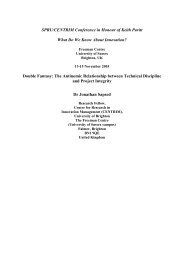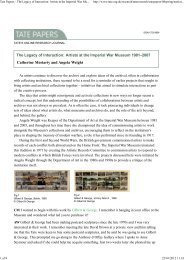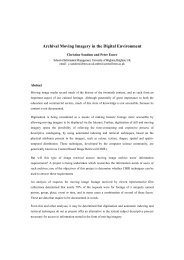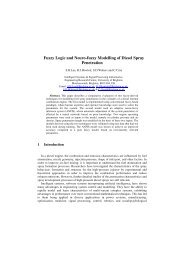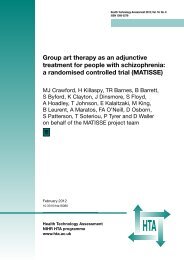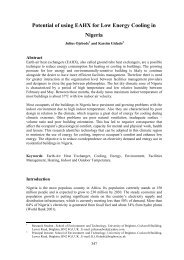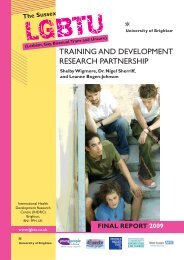NESTA Crime Online - University of Brighton Repository
NESTA Crime Online - University of Brighton Repository
NESTA Crime Online - University of Brighton Repository
Create successful ePaper yourself
Turn your PDF publications into a flip-book with our unique Google optimized e-Paper software.
Nigerian criminal gangs in North America and Western Europe have made extensive use<br />
<strong>of</strong> these opportunities. There are thought to be more than 500 Nigerian organised crime<br />
groups operating in 80 countries.<br />
From Russia with love<br />
According to VeriSign, one <strong>of</strong> the world’s largest Internet security companies, RBN, an<br />
Internet company based in St Petersburg, is “the baddest <strong>of</strong> the bad”. In one sense,<br />
RBN (Russian Business Network) does not exist. It has no legal identity; it is not<br />
registered as a company; its senior figures are anonymous, known only by their<br />
nicknames. Its websites are registered at anonymous addresses with dummy e-mails. It<br />
does not advertise for customers. Those who want to use its services contact it via<br />
Internet messaging services and pay with anonymous electronic cash. But the menace it<br />
poses certainly exists. “RBN is a for-hire service catering to large-scale criminal<br />
operations,” says the report. It hosts cybercriminals, ranging from spammers to<br />
phishers, bot-herders and all manner <strong>of</strong> other fraudsters and wrongdoers from the venal<br />
to the vicious. VeriSign estimates that a single scam, called Rock Phish (where gullible<br />
Internet users were tricked into entering personal financial information such as bank<br />
account details) made $150m in a year.<br />
Source: www.economist.com (20 August 2007).<br />
(D) More recently, Brazil has emerged as a significant player on the global cybercrime<br />
stage 98 and a "cesspool <strong>of</strong> fraud" according to one commentator. 99 The main driver that<br />
encourages young Brazilians to develop their skills is impunity – Brazil lacks any form <strong>of</strong><br />
effective legislative framework to combat cybercrime. Another driver would appear to be<br />
cultural. 100, 101 Brazilian hackers are increasingly sophisticated, particularly in online<br />
98 Gibb, T., (14 th September 2004), Brazil is world ‘hacking capital’, BBC News,<br />
http://news.bbc.co.uk/1/hi/world/americas/3657170.stm.<br />
99 Paul Fisher, “Brazil is cesspool <strong>of</strong> fraud”, Scmagazine, October 28, 2008.<br />
100 Cybercriminals from Brazil are largely, it would seem, independent operators, brought together by<br />
chatrooms. Generally, they started cyberlife as hackers and graduated via the chatrooms to more lucrative<br />
pursuits. Glenny, M., (2008), McMafia: <strong>Crime</strong> Without Frontiers, (Random House, London), pp.303 – 313.<br />
101 Brazilian Cybercriminal are thought to be more sociable and open than their counterparts in other parts <strong>of</strong><br />
the world and are more prepared to share data and develop knowledge collectively, albeit via anonymous<br />
Page 33




